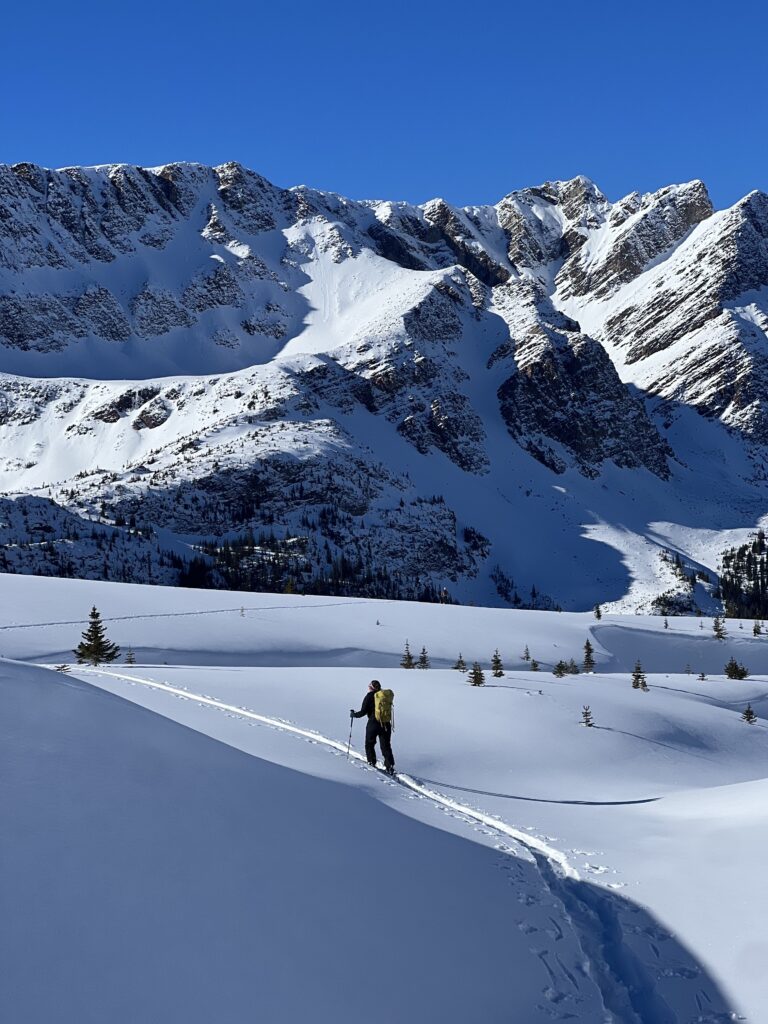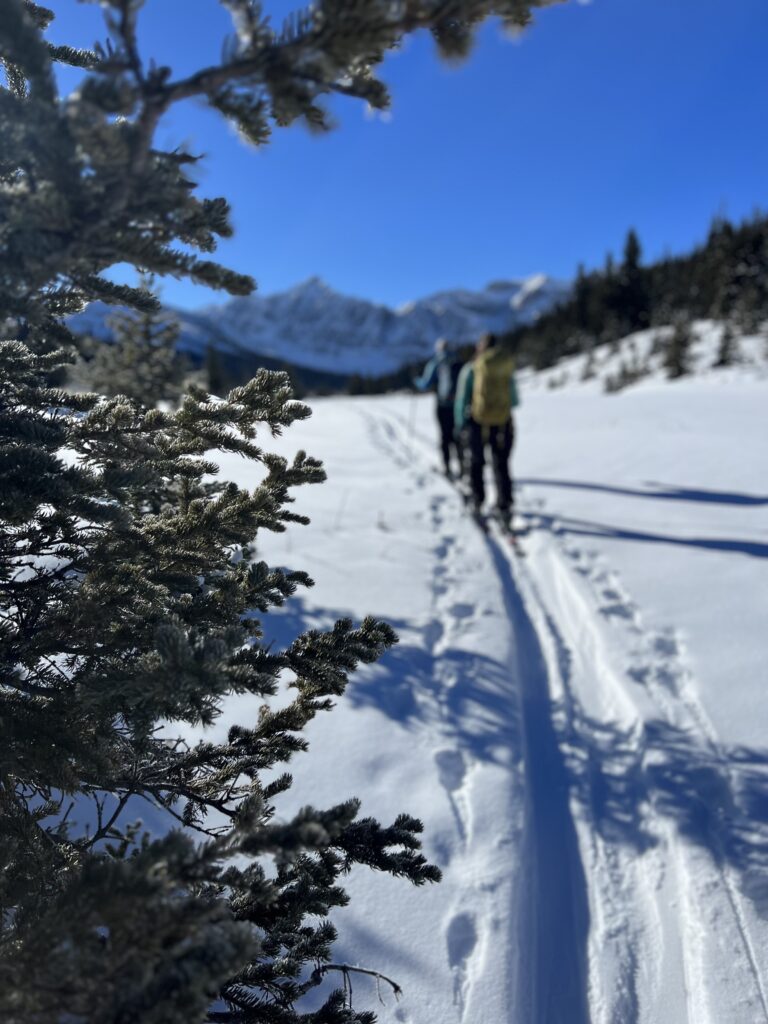A painful slog out of Jasper’s backcountry has taught a party of skiers a lesson in being prepared for safe adventuring.
Jasper’s John Ward has skied many a mile over many a mountain pass—and made most of his tracks and turns without incident.
“I’ve never required any assistance,” Ward said.
But on February 6, after taking a fall while ski touring in the Maligne Range—he and his group were about half way into a 28 km loop to the headwaters of Evelyn Creek and back—Ward knew his streak was over. He hit the hard snow and ice awkwardly, resulting in a fractured collarbone.
“I pretended to myself that it didn’t hurt,” the retired railroader said.
However there was only so much pain Ward could conceal—to himself and to his two touring partners. When he finally admitted outside help was probably needed, it was getting late in the day.
“Light was fading,” he said.
But instead of using his satellite communication tool to alert the authorities of their predicament and initiate assistance from rescue officials, Ward and his partners used the device to text a fellow Jasperite and ask them to contact the Jasper National Park dispatch office.
“We’ve been carrying these things for several years and always had this thought ‘oh hell, we don’t need to get Colorado involved,'” he said.
When an emergency beacon is depressed, most sat-comms devices send a signal to a U.S.-based dispatching centre—which then relays the message to local rescue teams. However, in this case, circumnavigating the service was an unnecessary work-around that ended up costing Ward and his partners valuable daylight.
“In retrospect, that’s not the recommended procedure,” Ward admitted.
What rescue personnel would like backcountry users who find themselves in a sticky situation to do, is to use their sat-comms devices to call officials, directly, for help. Jasper National Park public safety technician Deryl Kelly said as tempting as it is for recreational backcountry users to want to self-diagnose their emergency, rescue professionals are experts in urgency determination.
“Everyone’s got a different perspective, so if you can press the SOS we can determine the emergency,” Kelly said.
He added that an early call often allows officials to help a wayward party course-correct.
“It can be something as simple as ‘you’re just off trail, go back 100 metres.’ Those early corrections can be a saving grace,” Kelly said.

In Ward’s situation, all the extra texting and phone-tag with dispatchers cost officials about an hour of lead-time—and in the shortened days of early February in Jasper, that meant not being able to call in a helicopter rescue. The group had enough gear to spend the night, but it would have been uncomfortable. Instead of braving negative double-digit temperatures, they decided to grit their teeth and ski out.
“We had to put our heads down,” Ward said.
Eventually, Jasper public safety staff met them near the Bald Hills fire road, where the injured Ward was ferried down via snowmobile, en route to the Jasper Seton Healthcare Centre. By the time all members of the party made it off the mountain, the sun had set.
“In the moment it may not seem too severe, but the situation could morph—into hypothermia, another fall, cramping…who knows?” Ward said.
To avoid such close shaves, Ward is reiterating Kelly’s advice: if you have a SPOT or inReach or other satellite communication device, don’t hesitate to use it.
“You bought it, you’re paying for the subscription, so use it for what it was meant for,” he said.
By doing so, not only do the proper authorities get alerted in as timely of fashion as possible, but local rescuers can track your party’s progress, thanks to the GPS function of the devices.
“They knew exactly where we were, and when we were moving,” Ward recalled.
Kelly noted that as good as the technology is, it only works if it—and the phone connected to it—has power. Too many calls-for-help have gone unsent because of battery drainage, he said. Carrying a backup powerpack is now standard in most adventurers’ kits, he suggested.
“You have to keep your batteries charged and warm, otherwise you’re just carrying a brick,” Kelly said.

While there haven’t been many rescue calls in general this season, last week’s new snow will likely whet people’s appetite for adventure, according to Kelly. For that reason he’s repeating the message that safety in the backcountry is a shared responsibility.
“Parks Canada is just one resource. Overall, there’s not a lot of excuses for not knowing what you’re getting into.”
Bob Covey // bob@thejasperlocal.com


